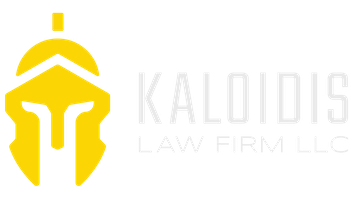[blocksy-content-block id="592"]
Home Invasion in Connecticut is one of the most serious crimes you can be charged with. Laws enacted after the 2007 Cheshire Home Invasion created a new crime targeting this including the imposition of a 10-year mandatory minimum sentence for anyone convicted.
If you have been charged with home invasion, it is vital that you understand the crime that you are facing. This charge will change your life. You should also reach out to an experienced attorney as soon as possible because the penalties for home invasion are serious. Without the help of an aggressive attorney, your future is in jeopardy, and you are be facing jail time, fines, and a permanent criminal record. In fact, you face a minimum of a decade in jail. The aggressive Connecticut criminal defense attorneys at The Kaloidis Law Firm, LLC, are prepared to fight for your rights and protect your future.
What Elements of Home Invasion Must Prosecutors Prove?
Home invasion is a distinct crime from burglary or breaking and entering in Connecticut. The crime of Home Invasion is found in C.G.S. § 53a-100aa of the Connecticut Penal Code. Home invasion is a serious criminal charge that is considered a class B felony in Connecticut. The Connecticut legislature chose not to divide the crime into varying degrees for lesser and more egregious home invasion offenses. As a result, there is no first-degree or second-degree home invasion. You will face the same penalties if you are convicted of a home invasion. To convict the defendant, the prosecution must prove every element of home invasion beyond a reasonable doubt. There are four elements prosecutors need to prove for a conviction.
(1) Unlawfully Entering or Remaining in a Dwelling
First, prosecutors must prove that the defendant had unlawfully entered or remained inside a dwelling when the alleged crime occurred. This means that the defendant must have entered a home, apartment, condo, or other residents with someone who sleeps at night without permission. If you have been charged with home invasion, but you had permission to enter the dwelling in question, your attorney can provide evidence that you did not enter the dwelling without permission. In that case, the prosecutor would not be able to convince you of the crime of home invasion. For example, suppose you had a text message from a friend inviting you to come over to his house. If you entered his house, the text message is evidence that you had permission to enter the dwelling. Immediately contacting The Kaloidis Law Firm can help make sure you preserve this evidence.
(2) A Human Being Must Be Inside the Dwelling
Second, the prosecutor must prove that another human being was inside the dwelling at the time of your unlawful entry into the dwelling. It is not enough to show that a co-conspirator or accomplish was inside the dwelling when the crime was committed. The prosecution needs to show that there was another person other than you and anyone else involved in the commission of the alleged crime at the time it happened.
(3) Intent to Commit a Crime
Third, the prosecution must prove that you intended to commit a crime when you entered the dwelling. Doing so can be difficult for prosecutors, and your attorney may be able to provide evidence that you had no intention to commit a crime. Perhaps you were intoxicated and unintentionally entered a stranger’s home because the door was open, and he thought it was your own home. You did not have any intention of doing anything illegal inside the home. This would not be considered a home invasion. The prosecution needs to show that you had the intent to commit a crime, such as larceny, kidnapping, assault, or sexual assault, when you entered the dwelling illegally.
Attempt to Commit a Felony
The final element that the prosecution must prove is that during the course of the alleged home invasion, you were armed with a deadly weapon, an explosive device, or some other dangerous instrument. Alternatively, the prosecution would need to prove that you or your co-conspirator attempted to commit a felony or committed a felony against one of the individuals inside the dwelling. A felony against a person can include rape, kidnapping, robbery, or murder.
The Penalties for Home Invasion
The penalties for home invasion are serious as it is considered a class B felony in Connecticut. If convicted, you will face up to 60 years in prison, 10 of which cannot be suspended or reduced. A conviction also carries a maximum fine of $20,000.
Contact Home Invasion Attorneys Ready to Fight for You
At the The Kaloidis Law Firm, LLC, we know how high the stakes are in home invasion cases. That is why we fight aggressively for our clients from the moment they hire us until we achieve the best outcome possible in their caves. Contact The Kaloidis Law Firm, LLC, to schedule an initial consultation and learn more about our services.
